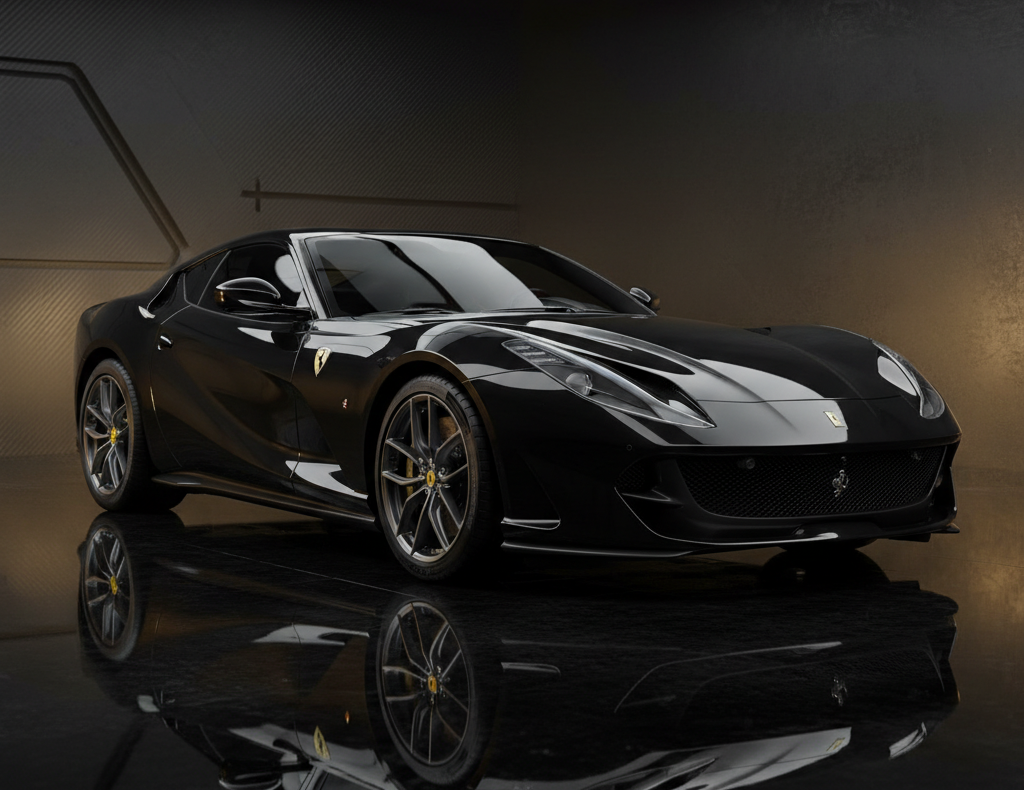
Hear from Our Customers
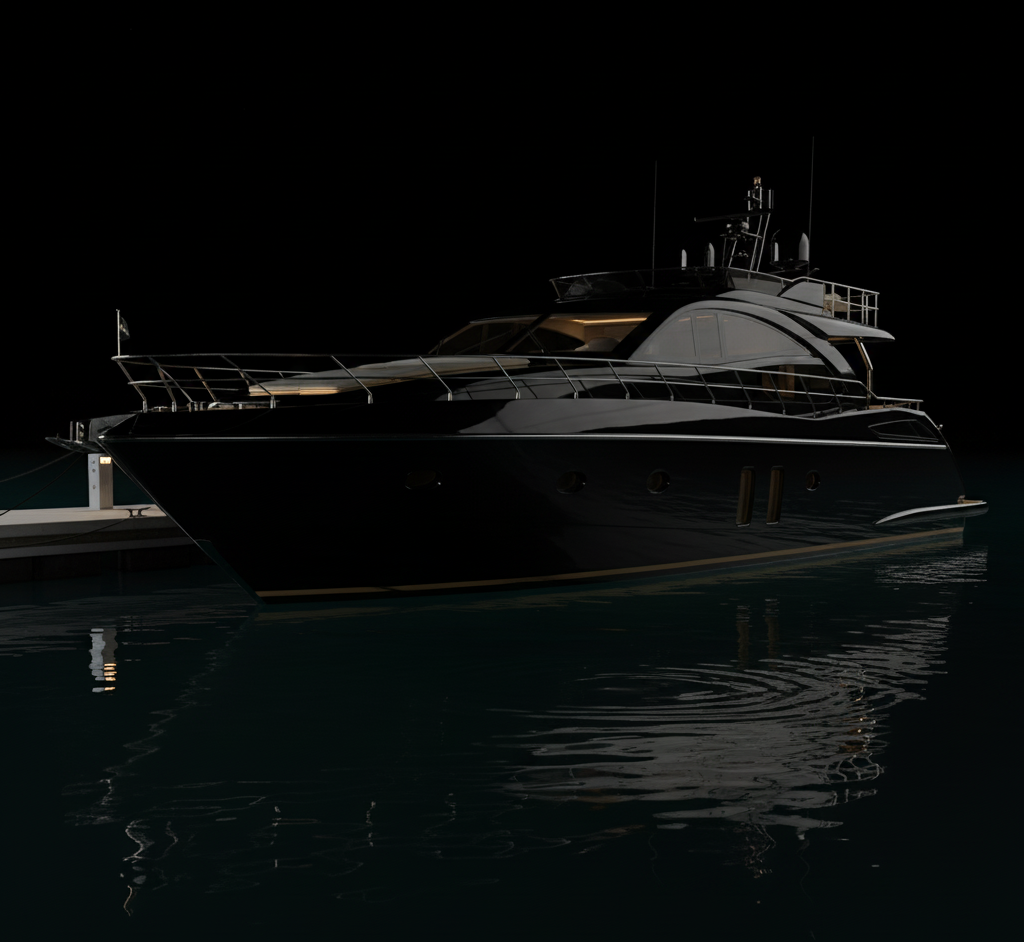
Your exotic car or yacht represents a significant investment. Standard waxes and basic protection fail within months, leaving your assets vulnerable to salt air, UV damage, and environmental contaminants that plague Long Island’s coastal conditions.
Professional ceramic coating creates a molecular bond with your vehicle’s surface that lasts years, not seasons. The hydrophobic barrier repels water at contact angles exceeding 100 degrees, meaning dirt, salt, and grime slide off rather than etching into your paint or gelcoat.
You’ll spend less time maintaining your vehicles and more time enjoying them. The deep, candy-like gloss enhances your asset’s appearance while the 10H hardness rating provides scratch resistance that keeps your investment looking pristine.
We bring professional-grade ceramic coating expertise to Elwood’s luxury vehicle and marine community. Based in Port Jefferson Station, we understand the unique challenges that Long Island’s coastal environment presents to high-value assets.
Our facility features climate-controlled application bays that ensure optimal curing conditions, free from the dust and contaminants that compromise inferior installations. Every surface receives meticulous preparation including decontamination, polishing, and multi-stage correction before the coating application.
Our certified technicians use only premium graphene-enhanced ceramic coatings that exceed marine-grade specifications. This means your luxury car receives the same level of protection designed for yachts facing harsh saltwater conditions year-round.
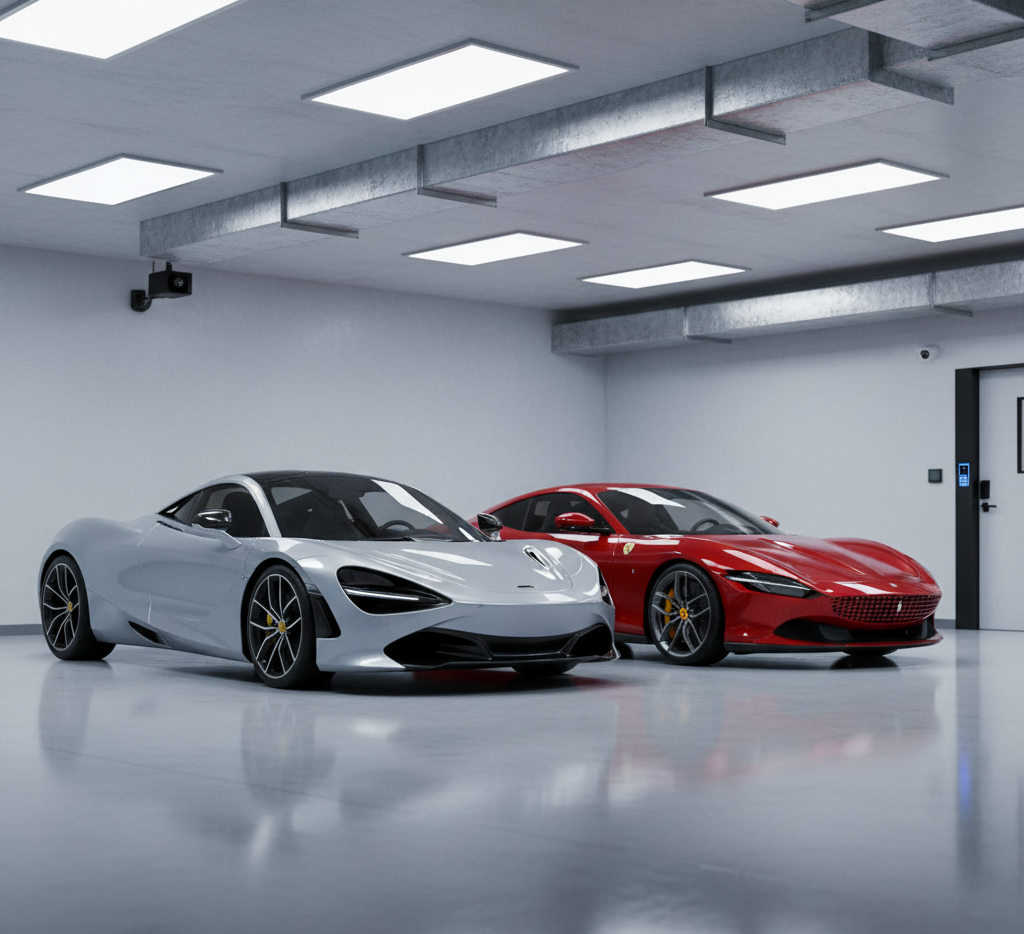
Our process begins with comprehensive surface evaluation and preparation. Paint correction removes swirl marks, scratches, and oxidation that would otherwise be sealed under the coating. Every panel receives thorough decontamination using specialized clay treatments and chemical cleaners.
The ceramic coating application happens in controlled conditions using precision techniques. Two heat-cured layers applied at 140°F using infrared lamps ensure proper molecular bonding. This isn’t a spray-on treatment—it’s an engineered process that creates permanent protection.
Curing takes 24-48 hours during which the coating chemically bonds to your vehicle’s surface. The result is a protective barrier that withstands salt exposure, UV radiation, and environmental contaminants while maintaining superior hydrophobic properties for years of low-maintenance protection.
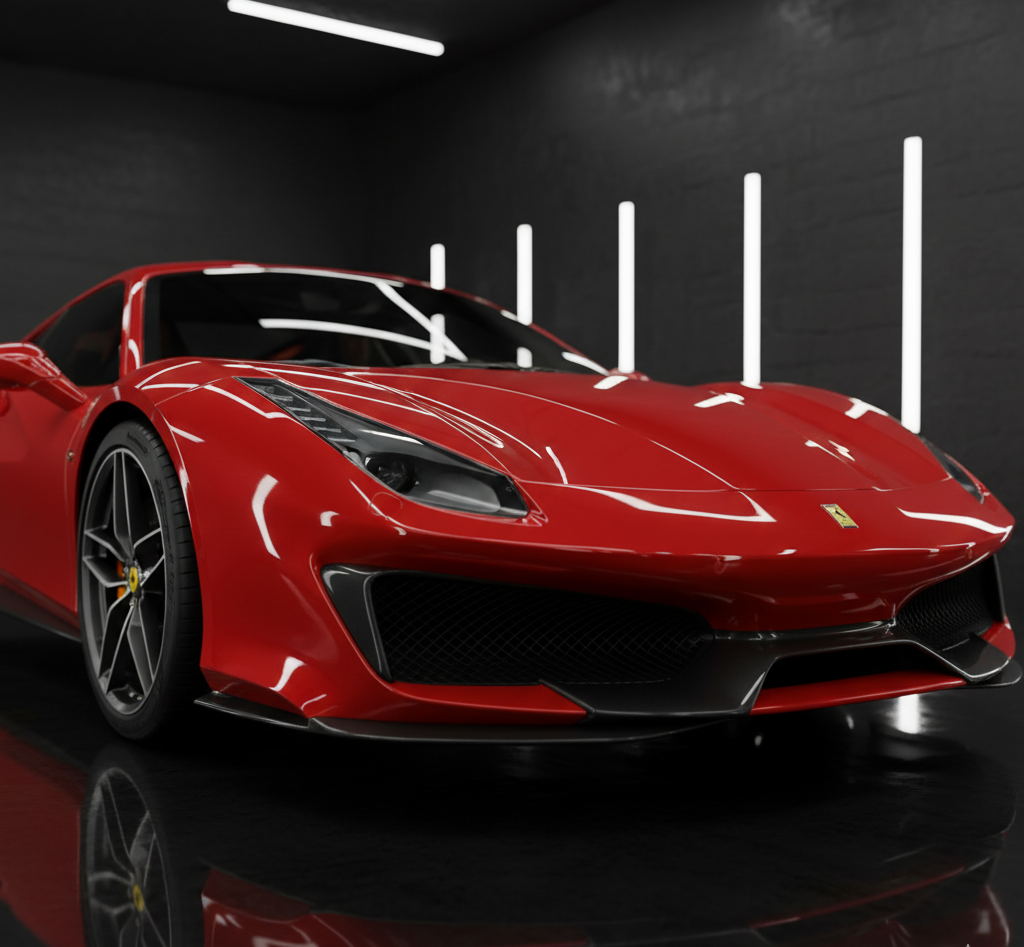
Ready to get started?
Our service covers all exterior surfaces including paint, gelcoat, glass, metal trim, and plastic components. Marine applications receive specialized attention with coatings formulated to withstand constant salt exposure and harsh UV conditions common to Long Island waters.
Graphene-enhanced formulations provide superior thermal conductivity and electrical properties that standard ceramic coatings lack. This advanced technology offers enhanced durability and reduced susceptibility to water spotting—critical advantages for vehicles exposed to Long Island’s variable weather patterns.
Each application includes comprehensive surface preparation, multi-layer coating application, and detailed curing process. The hydrophobic properties create self-cleaning effects that reduce maintenance requirements while preserving the deep gloss that makes luxury vehicles and yachts stand out on Elwood’s roads and waterways.
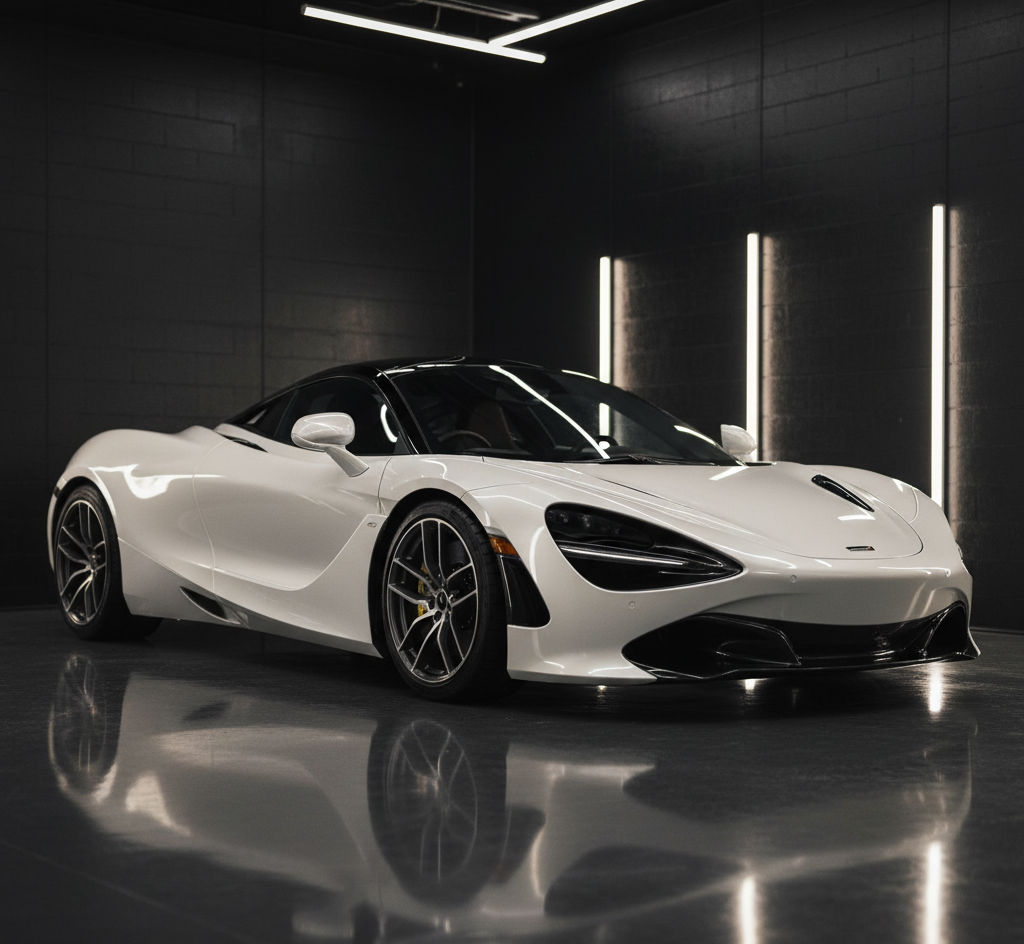
Professional ceramic coating applications typically provide 3-5 years of protection for automotive surfaces and 2-3 years for marine applications in Long Island’s coastal environment. The longevity depends on several factors including the quality of surface preparation, coating thickness, and exposure conditions.
Graphene-enhanced coatings offer superior durability compared to standard ceramic formulations. The molecular structure resists degradation from salt exposure, UV radiation, and temperature fluctuations common to the Elwood area. Marine-grade coatings use higher ceramic polymer concentrations specifically designed for harsh saltwater conditions.
Regular maintenance with pH-neutral soaps and periodic inspections help maximize coating life. Unlike traditional waxes that require reapplication every few months, properly installed ceramic coatings maintain their protective and aesthetic properties for years with minimal upkeep.
Ceramic coating and paint protection film serve different protective functions and work excellently together. Ceramic coating creates a molecular bond with your vehicle’s surface, providing chemical resistance, UV protection, and hydrophobic properties. It enhances gloss and makes cleaning easier but doesn’t prevent physical damage like rock chips or deep scratches.
Paint protection film offers physical barrier protection against stone chips, scratches, and impact damage. Modern PPF has self-healing properties that eliminate minor scratches with heat application. However, it doesn’t provide the same level of chemical resistance or ease of maintenance that ceramic coating offers.
Many luxury vehicle owners choose both technologies for comprehensive protection. PPF protects high-impact areas like the front bumper, hood, and mirror caps from physical damage, while ceramic coating covers the entire vehicle for chemical protection and enhanced appearance. This combination provides the most complete protection available for exotic and luxury vehicles.
While the fundamental ceramic coating technology is similar, marine applications require specialized formulations and modified processes. Marine-grade ceramic coatings contain higher concentrations of active ceramic polymers to withstand constant salt exposure, UV radiation, and moisture that boats face.
The application process for marine surfaces often requires more extensive surface preparation due to oxidation, salt buildup, and gel coat porosity. Yachts and boats typically need two full coating layers to achieve adequate protection, while automotive applications may only require one layer depending on the specific product used.
Temperature and humidity control during application is critical for both automotive and marine coatings. We use climate-controlled environments to ensure proper curing and maximum coating performance regardless of whether you’re protecting a luxury car or yacht.
Professional ceramic coating costs vary based on vehicle size, surface condition, and coating system selected. Luxury cars typically range from $1,500-$3,500 for complete coverage, while yachts and larger marine vessels can range from $2,500-$8,000 depending on size and complexity.
The investment includes comprehensive paint correction, multi-stage surface preparation, premium coating materials, and professional application in controlled conditions. Higher-end graphene-enhanced coatings command premium pricing but offer superior durability and performance characteristics.
Consider the long-term value when evaluating costs. Professional ceramic coating eliminates the need for regular waxing, reduces detailing frequency, and helps maintain your vehicle’s resale value. The protection typically costs less per year than traditional maintenance programs while providing far superior results.
Proper surface preparation is critical for ceramic coating success and typically represents 70-80% of the total process time. The vehicle must be thoroughly washed, decontaminated with clay treatments, and undergo paint correction to remove swirl marks, scratches, and oxidation.
Chemical decontamination removes embedded contaminants like tar, tree sap, and industrial fallout that regular washing can’t eliminate. Iron removal treatments dissolve brake dust and metal particles, while clay bar treatment removes bonded surface contaminants. Any paint defects must be corrected before coating application.
The final preparation step involves solvent wiping to remove all polishing oils and residues. Only when the surface is completely clean and defect-free can the ceramic coating be applied. This meticulous preparation ensures maximum coating adhesion and longevity—shortcuts during preparation always result in premature coating failure.
High-quality ceramic coatings provide excellent protection against road salt and winter conditions common to Long Island. The molecular barrier prevents salt from bonding directly to your vehicle’s paint, making it easier to remove during regular washing and preventing long-term corrosion damage.
Graphene-enhanced coatings offer superior salt resistance compared to standard ceramic formulations. The coating’s hydrophobic properties cause salt-laden water to bead and roll off rather than sitting on the surface where it can cause damage. This is particularly valuable for luxury vehicles that see year-round use.
Winter maintenance becomes significantly easier with ceramic coating protection. Salt and road grime rinse away more readily, reducing the aggressive scrubbing that can damage unprotected paint. The coating maintains its protective properties throughout Long Island’s harsh winter months, providing consistent protection when your vehicle needs it most.
Other Services we provide in Elwood